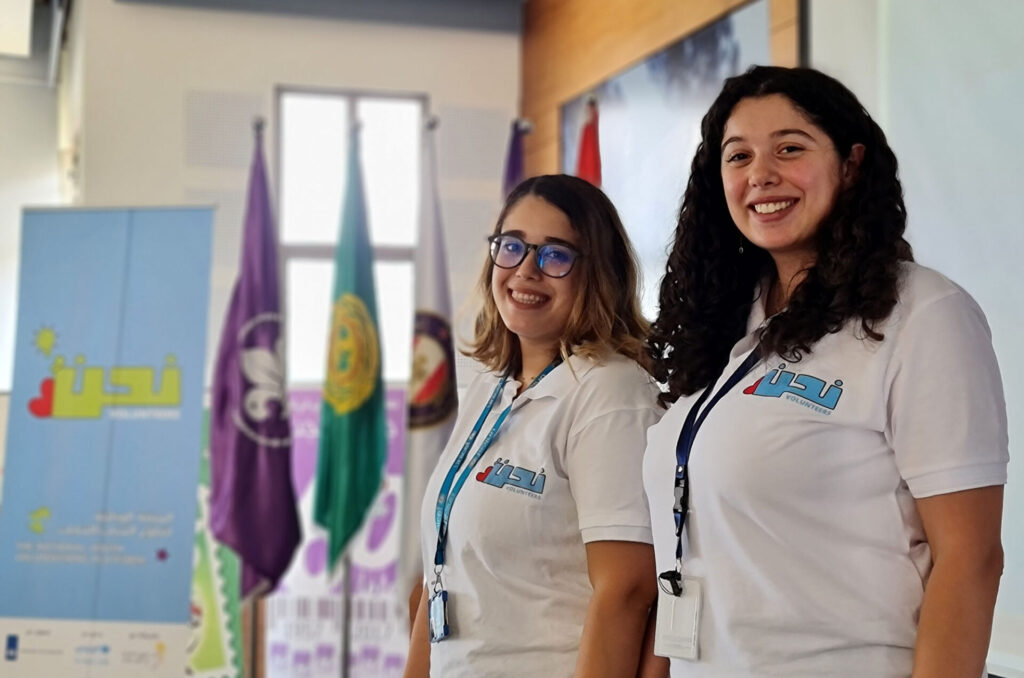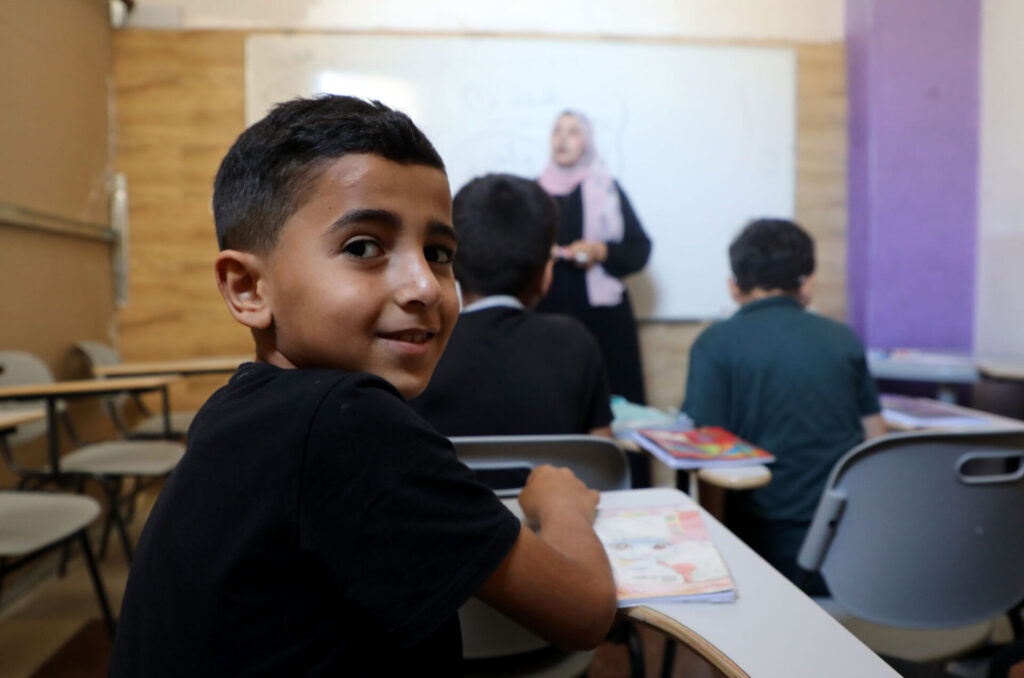COMMUNITY
Every Girl Counts - Safeguarding Youth in Lebanon
Mar, 2022
The Sama Project | Safeguarding adolescents through multidisciplinary assistance
Hala Rakan is a Lebanese eighth grader who loves drawing and wants to become a famous painter. The last thing on her mind is getting married. But if Lebanon’s economic crisis continues to deteriorate, girls like Hala are at risk of getting married off. Her mother, Sofana, is her family’s breadwinner and struggles to make ends meet to provide for her five children.
Sofana knows from her own experience what it means to be married too young. “My family forced me into marriage when I was very young. I lived with my husband through many years of pain and oppression,” she remembers. “I do not want to see any of my daughters go through the torment I went through.”


“I do not want to see any of my daughters go through the torment I went through.”
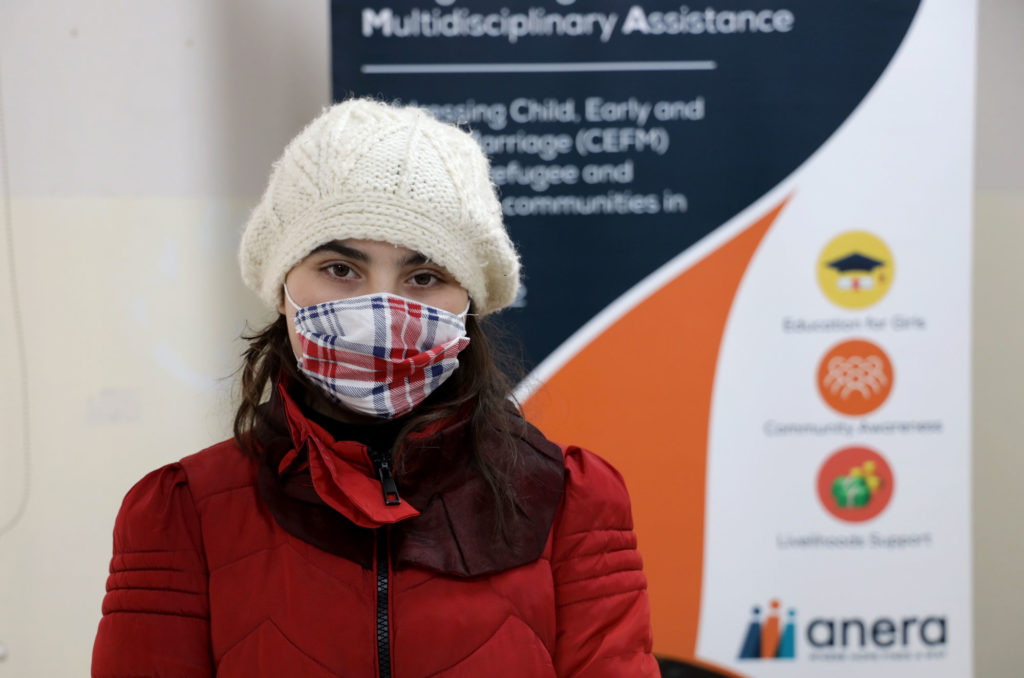

Hala is grateful for her mother’s determination to protect her by enrolling in the Sama Project. “My mother enrolled me in this program that protects minors by educating them. She is doing everything she can to avoid me getting married anytime soon.”
Sofana believes that Sama will provide her daughter with opportunities to engage more in society, which will increase her level of awareness and openness.
“I keep my children away from the idea of early marriage as much as I can, and push them always towards education and success to ensure a better future before even thinking about marriage. I do not want my children to live the tragedies of early marriage that I experienced.”
Lebanon’s cascading series of crises has forced vulnerable Lebanese and refugee communities to resort to numerous unhealthy coping and survival mechanisms. Some 40% of young Syrian refugee women were married before the age of 18. Forced marriage is one measure that Anera and other organizations are trying to counter with assistance programs like Sama Project.
What is the Sama Project?
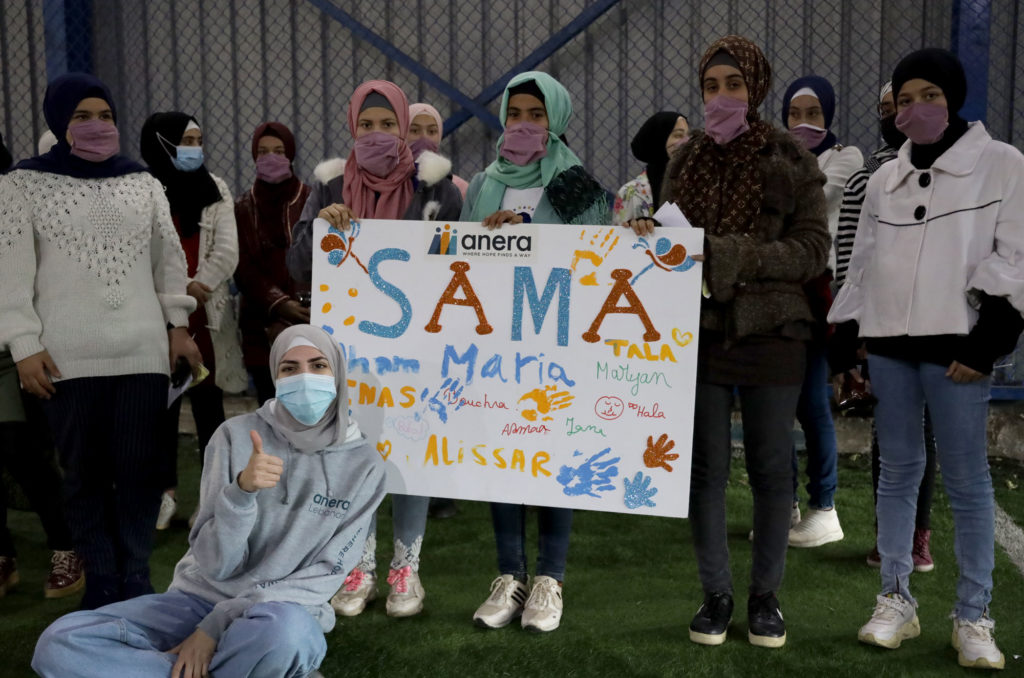

The Sama Project is a holistic, multi-dimensional initiative which provides education and poverty reduction assistance to families. Funding for the Sama Project came from a collection of donors led by the Forth Foundation, a private charity.
Throughout the course of the program, Anera is carefully assessing the effect that cash assistance has on girls' access to education and, thus, their vulnerability to early marriage. There will be community awareness campaigns aimed at men, boys, and divorced women to help supporters of the program change cultural norms related to early marriage.
The goal is to help 673 girls pivot away from early marriage by keeping them in school and focused on their education. The message is simple: an educated girl, with career prospects, can contribute to her family's livelihood more than a young girl forced to drop out of school at an early age and often become a mother before she turns 17.
Over the past two months, Anera has been working with schools in the northern Akkar area, Lebanon’s poorest governorate. Our team identifies potential beneficiary families who will receive cash assistance if they commit to enrolling their girls in school. They also must not force their daughters into marriage before the age of 18.
Early marriage has been an ongoing issue in Lebanon. In fact, each of Lebanon’s 18 recognized religious groups has its own rules on the legal age to wed. Lebanese civil society organizations and girls’ rights activists have been fighting the good fight against archaic laws and religious institutes, trying to raise the age limit. Their advocacy efforts advanced a draft law in 2017 that would set the minimum age for marriage at 18, with no exceptions. Yet five years later, the Lebanese Parliament has still not voted on this legislation.
So what happens when there is no law to protect girls and their futures? What happens when schools are closed, teachers are protesting, streets are blocked and more 78 percent of the Lebanese are living below the poverty line with 36 percent of the population living in extreme poverty according to the UN?
A lost generation is what happens. A generation robbed from an innocent childhood and a stable future.
To address the increase in forced marriage in Lebanon, Anera is implementing a two-year program addressing and assessing the key drivers of child, early and forced marriage, supported by a grant from The Sama Project.
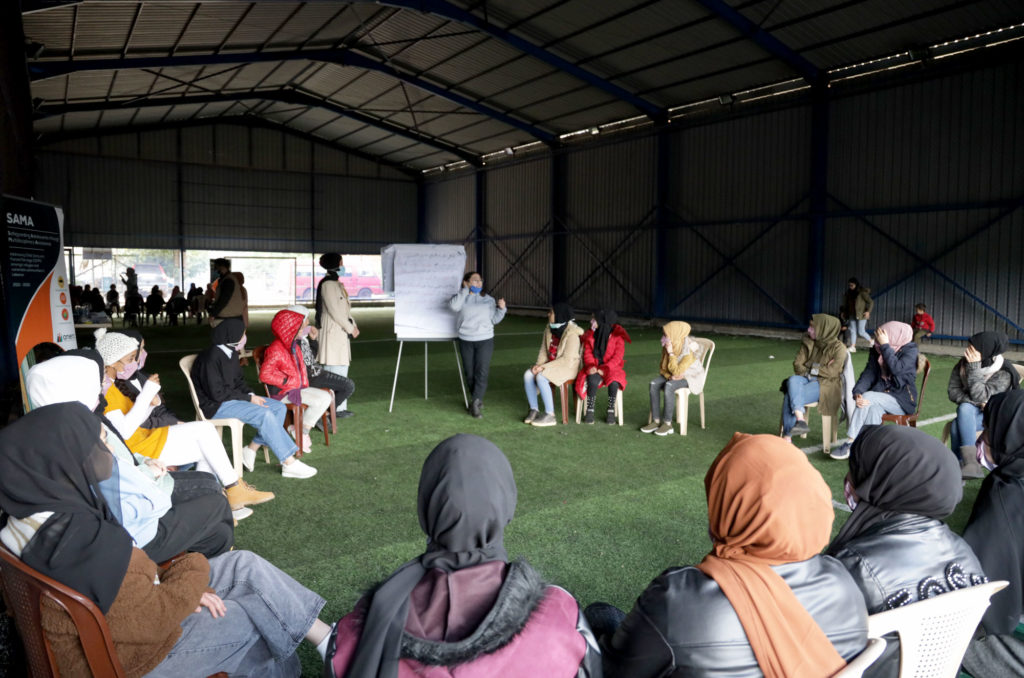

Tala Qassem is a 14 year old Palestinian in the ninth grade. She lives in Nahr El-Bared camp. She knows that the lockdown and schools closing occasionally have negative ramifications and she really disliked learning online. “School is important in so many ways,” she says.
“I am against early marriage. Girls should not worry about adult responsibilities. Little girls are not strong enough to handle violence within the home or being controlled by their husbands.”
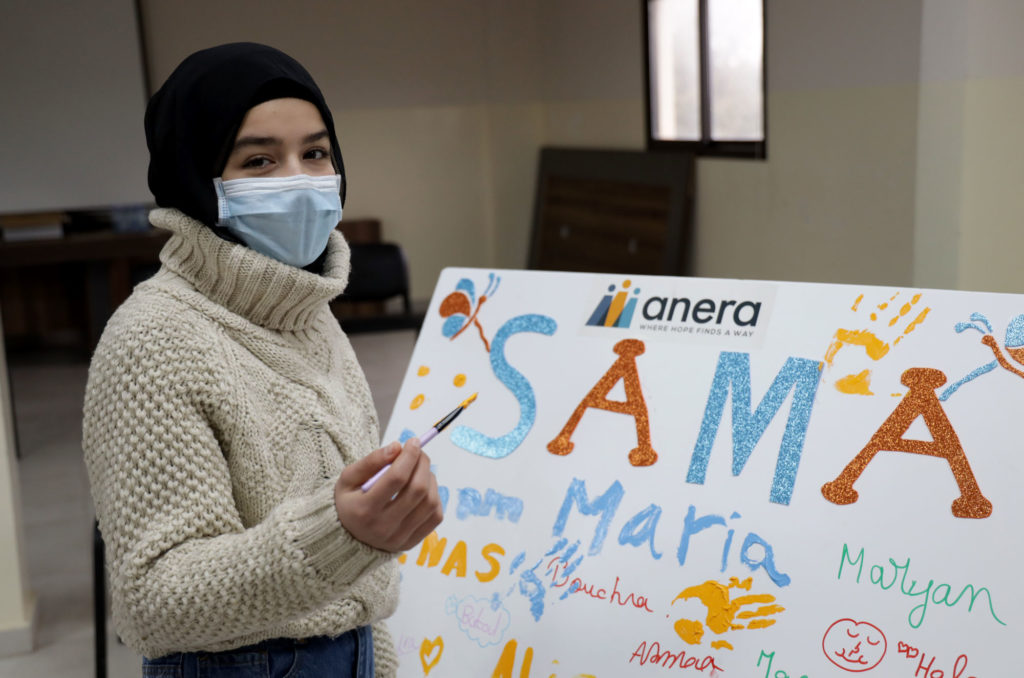

Samira Qadi, Tala’s mom, knows that her daughter’s education is crucial for her wellbeing. She herself was deprived of an education and got married at an early age.
“I care a lot about the education of my children, because I was deprived of school when I was young. But the current circumstances we are going through in Lebanon, in addition to the useless online education in the past two years, prompted me to enroll my daughter in this program.” she says.
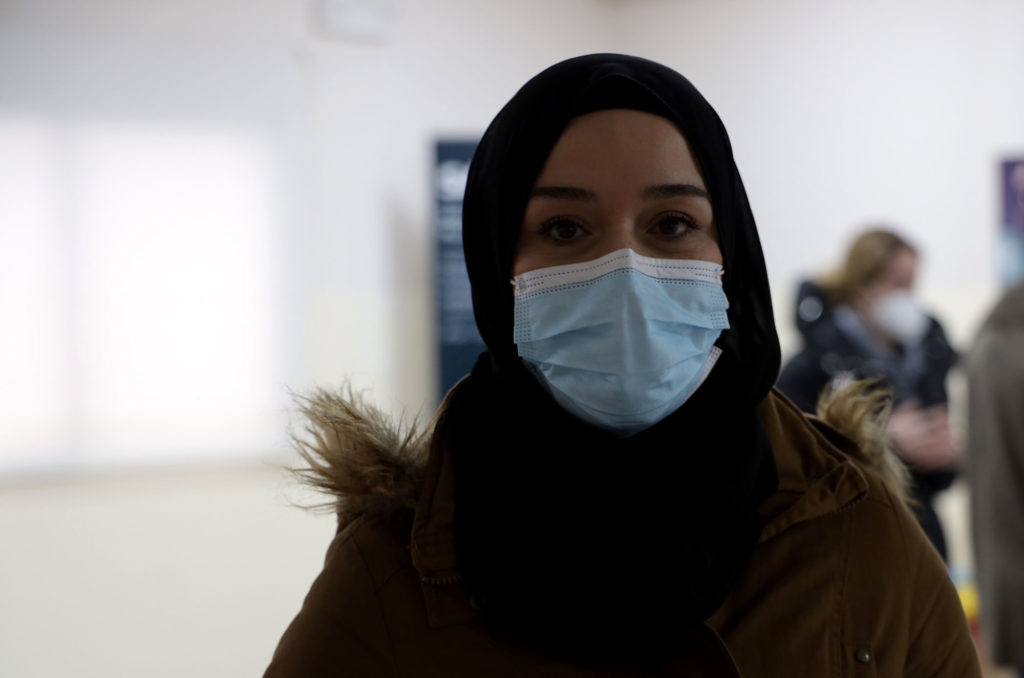

It is important to note that shame is a factor here. For example, most Lebanese families enrolled in this program refuse to divulge that they have indeed married off their elder daughters before the age of eighteen. According to Saraa, the project’s coordinator, “when a rich suiter comes along, very few families in Lebanon’s rural areas would reject a marriage proposal on behalf of their girls.”
Other parents are more upfront about child marriage. For them, it seems like the only way out of poverty for their daughters. Sometimes their options were hunger or marriage. They chose marriage.
Souad is a 35-year-old Syrian refugee and resident of Akkar. She is a mother of seven. She and her children escaped to Lebanon in 2014, after her husband was captured in Syria. He is still detained. Souad got married very young, and was pregnant with her first child at the tender age of 14. She says,
“I hope that no girl will ever go through what I went through. My life was very difficult and harsh, and my husband and his family used to abuse me physically and emotionally.”
Trauma upon trauma. Child marriage robs a girl of her childhood, and her right to play, learn and grow at her own natural pace. We need to break the toxic cycle of early marriages.
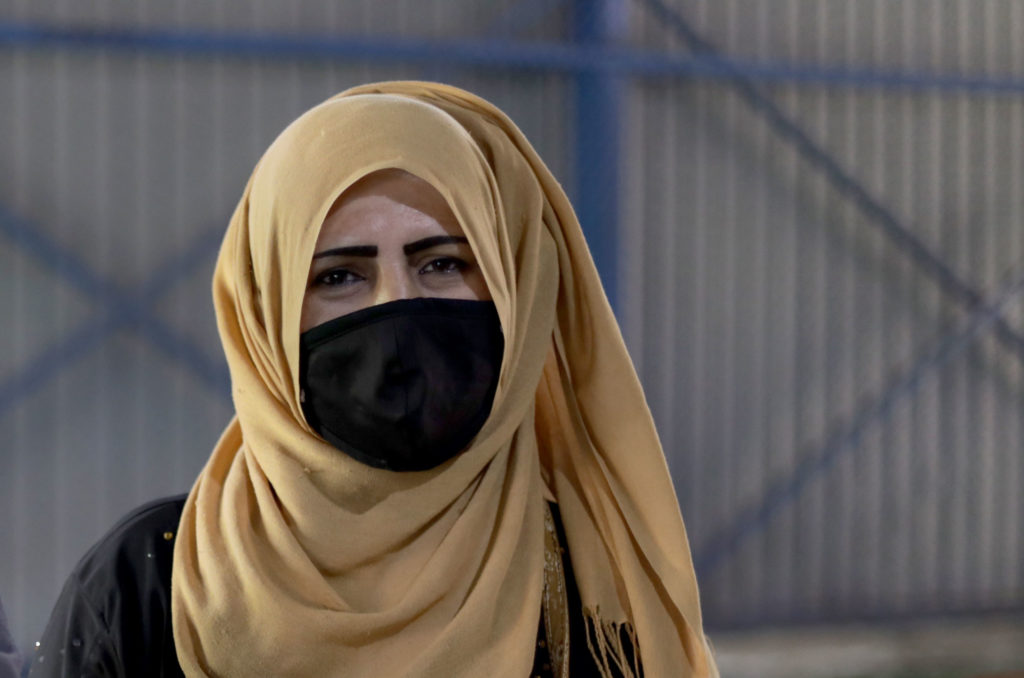

Souad was very open and keen on sharing the reality of things with us. She explained that many families of all nationalities in Lebanon are sometimes forced into marrying their daughters out of fear and harassment by certain violent groups in the area. Some parents are trying to shield their daughters from rape, and believe that she needs a man to protect her from threats.
“My daughters and I are always exposed to harassment and rape attempts. I was recently beaten by a group of young men after I refused their attempt to sexually assault me.”
Extorsion, harassment, abuse…these are facts of life in many areas of Lebanon. With the soaring unemployment rate and many people facing hunger, violence is increasing and families are scared for their children. Conservative and traditional religious practices are another risk-factor for child marriage in many communities. The Sama Project is challenging these beliefs by incentivizing parents to keep their daughters in school.
Souad is a fierce advocate for ending child marriage in her community. “I beg mothers to protect their daughters from early marriage, and to be keen on educating their daughters and protecting them from traditions that disregard girls and women. In our societies, women have no value as they are beaten, humiliated and killed.”
Every activist and girls' rights advocate who joins the fight against child marriage knows that it is a herculean effort. But we at Anera know that the struggle is worth it. Because the life and wellbeing of every girl counts.
Support for this project was provided by a grant from The Sama Project.

